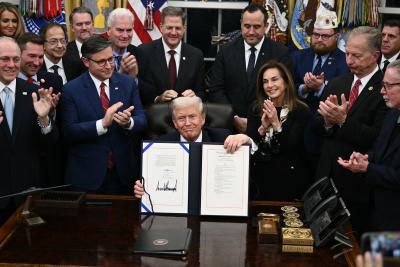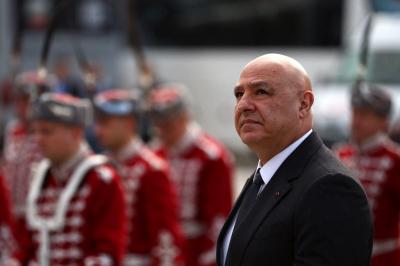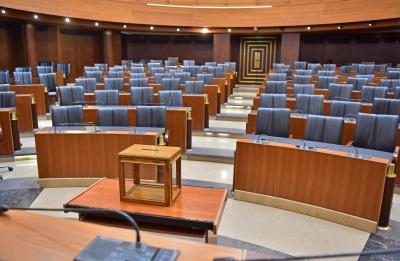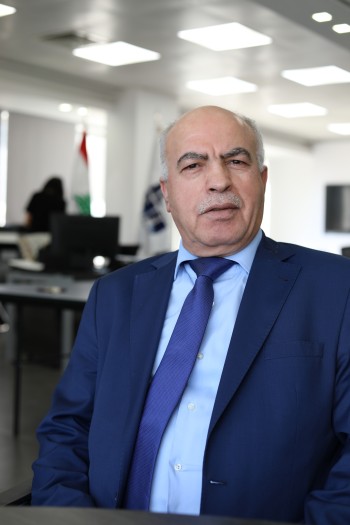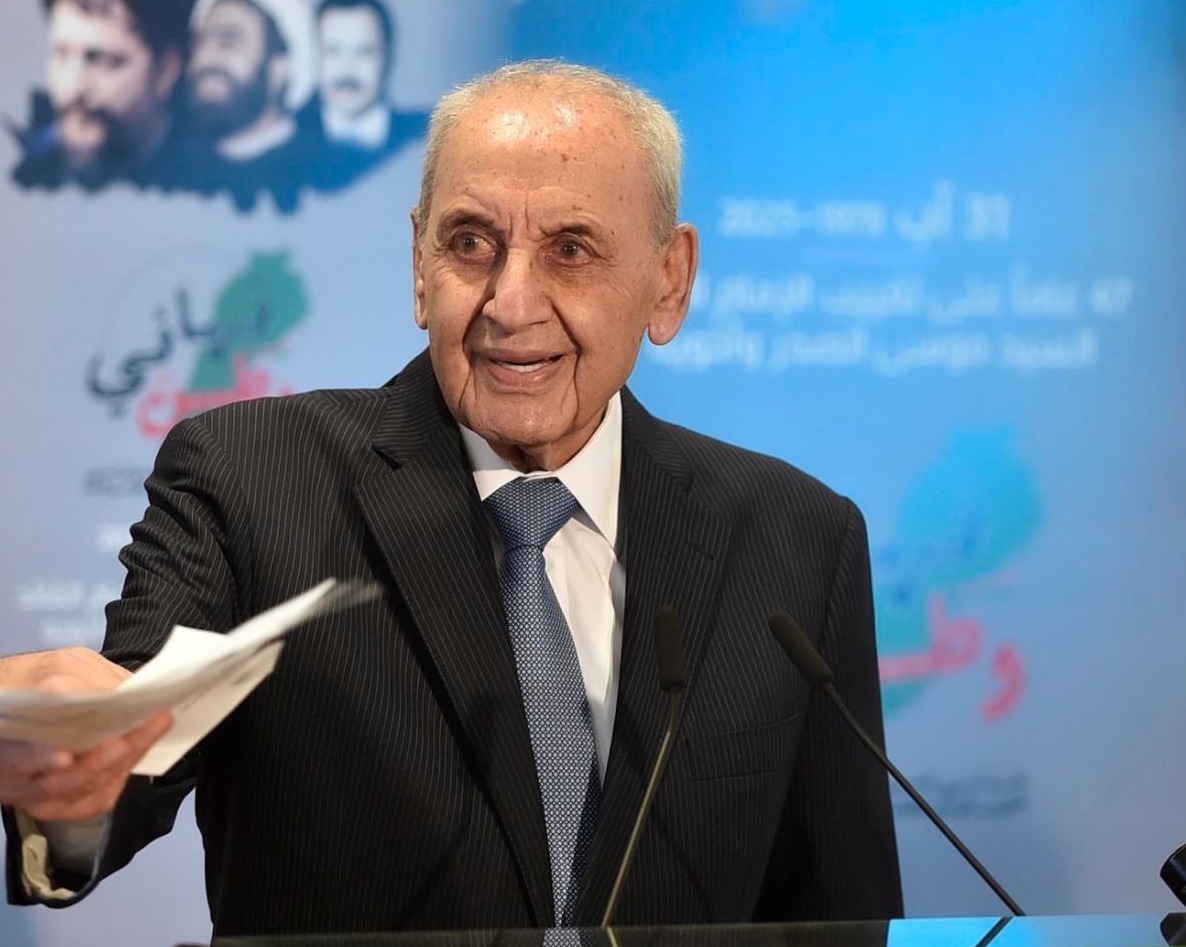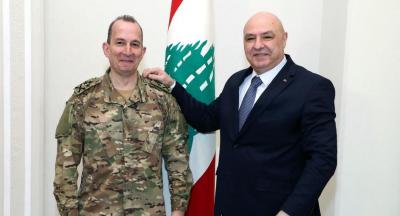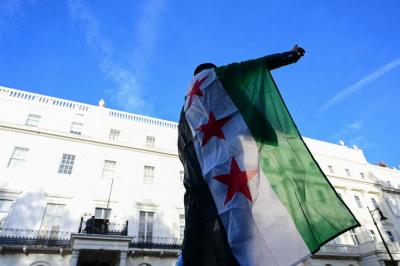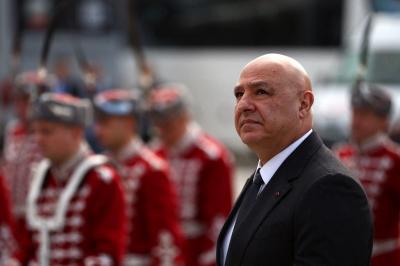Lebanon today stands at a decisive crossroads. The choices and events unfolding in the coming days will shape both domestic and international paths on the country’s most pressing issues. Chief among them is the government’s decision to “restrict weapons to the state’s control” a policy pushed by internal factions and external powers, who demand the disarmament of "Hezbollah"—by force if necessary, as U.S. Senator Lindsey Graham warned from Tel Aviv. Graham, a close ally of President Donald Trump, gave the warning as Israeli violations of the ceasefire agreement along the southern border continue unabated, leaving the situation on edge. This climate has been further inflamed by Prime Minister Benjamin Netanyahu’s presentation of a “Greater Israel” map that boldly encompasses Lebanon, Syria, Jordan, Iraq, Kuwait, and northern Saudi Arabia.
Against this tense backdrop, Lebanon’s cabinet is scheduled to meet Friday in what many have dubbed the “weapons session,” to discuss the army’s plan for implementing the government decision. On the eve of this meeting, Speaker of Parliament Nabih Berri addressed the nation during the 47th anniversary of Imam Musa al-Sadr’s disappearance. His speech was unexpectedly conciliatory, in contrast to predictions of fiery opposition to disarmament. Observers feared Berri would either reject the government’s push outright or acquiesce to the realities being imposed by both internal and external actors. Instead, he charted a more nuanced path, which analysts interpreted in seven key points:
1. Unity With "Hezbollah"
Berri dismissed speculation of rifts with "Hezbollah", emphasizing that the Shiite duo held a unified stance. He called for addressing the weapons issue internally, through calm, constitutional dialogue aimed at crafting a national security strategy. By doing so, he distinguished between disarmament and negotiations with Israel, which Washington and Tel Aviv insist must begin only after "Hezbollah" is disarmed and Israel’s daily ceasefire violations are overlooked.
2. Prioritizing Occupation and Reconstruction
He urged a return to the priorities of the presidential oath and the government’s policy statement: securing Israeli withdrawal and rebuilding the destruction of past wars. The Shiite bloc, he stressed, would hold on to weapons until the occupation ends, refusing to tie the matter to the U.S. proposal that sidelines the November 27 ceasefire agreement—an agreement seen as the practical framework for UN Resolution 1701.
3. Nationalizing the Issue
Berri reframed the weapons question as a national, not sectarian, concern. He highlighted that many southern towns under Israeli occupation are home not only to Shiites but also to Sunnis and mixed communities, such as Khiyam and Yaroun, reflecting Lebanon’s diverse fabric.
4. Warning Against Hate Speech
He drew a sharp line between ordinary Lebanese who showed solidarity during wartime displacement and those leading campaigns of “political bullying, defamation, and demonization” against the Shiite community. Berri warned of the dangers of hate speech, ignorance, and sectarian incitement, calling them a greater threat to Lebanon than "Hezbollah"’s arms, which he described as weapons that had liberated land, preserved dignity, and safeguarded sovereignty.
5. Protecting the Army
Berri opposed thrusting the Lebanese Army into the disarmament battle, calling it a “ball of fire” designed to undermine the military. He praised the army’s “sacred national role” in the south under Resolution 1701 and its efforts nationwide to protect civil peace.
6. The Real Threat: Greater Israel
The true danger, he argued, is not "Hezbollah"’s arsenal but Netanyahu’s map of a “Greater Israel.” Berri criticized the Israeli leader’s boast that he was on a “historic and spiritual mission” to fulfill this vision, which included all of Lebanon. He also denounced the Israeli chief of staff’s visit to southern Lebanon as an affront to Lebanese sovereignty.
7. A Call for National Unity
Finally, Berri urged all Lebanese to seize this moment of existential threat as an opportunity for unity, cooperation, and responsibility. He called for adherence to constitutional principles without sacrificing Lebanon’s core foundations as a “final homeland for all its citizens,” echoing Imam Musa al-Sadr’s slogan enshrined in the preamble of the Taif Accord.
A Roadmap Forward
In essence, many saw Berri’s address as a roadmap: a call for an inclusive, constitutional dialogue to integrate "Hezbollah"’s arms into a national security strategy that avoids internal strife. For Berri, the looming danger lies not in domestic weapons but in Israel’s expansionist project. Unless Lebanon unites to resist it, he warned, the country risks becoming a “mini-state” within Greater Israel—just as other states depicted on Netanyahu’s map could face the same fate if they fail to act.
Please post your comments on:
[email protected]
 Politics
Politics


